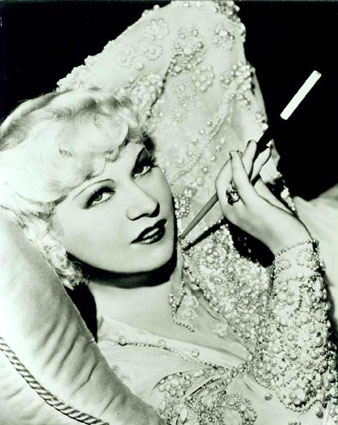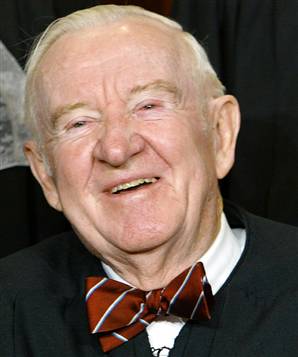« January 2010 | Main | March 2010 »
February 26, 2010
Heroes: Neely Swanson's No Meaner Place
No Meaner Place will highlight writers and writing that for one reason or another have pushed aside, shoved to the curb, and abandoned; wonderful scripts that have never made it to the big screen or to the small screen in series form.
--Neely Swanson, August 11, 2009
Writing Well, Hollywood. Here's why I personally admire directors, actors, producers and their writers:
Business executives, professionals, government officials, politicians, physicians, lawyers, academics, accountants and other generic white collar dweebs can--and do--make it big in their worlds and disciplines without being extraordinarily creative, gifted or otherwise talented. Or being talented at all.
In the West, we reward (a) fitting in, (b) moderate energies, and (c) making the right moves. There is nothing wrong with that. But is it enough?
In the scheme of things, most of us just slip by. We escaped the more discerning judges. We worked for other mediocre people. We surrounded ourselves with people who made us comfortable rather than challenge us. We were a bit energetic--and a lot lucky. We did the "right things", on safe paths, often chosen by others.
Next, we pretended that we, our firms or our colleagues, are smart or excellent or brilliant. On those days--the ones when we believe our own press releases--maybe someone should, you know, get the net.
Big Talent in the West's entertainment industry? I've been around or worked with some who have it, both known and inexplicably unknown, since I was fairly young. The rub: Big Talent, the kind attracted to and simmering in our LA and NYC-based entertainment industry, as well as places like London, Manchester, Paris, and Berlin, is merely a prerequisite.
It is rarely enough.

"Hollywood is the one place in the world where you can die of encouragement." -Dorothy Parker (1893-1967)
Even if you have Big Talent, and hit big once--the odds are greatly against that--you might not work again. You must, like Faulkner's Dilsey, endure.
Big Talent and Big Moxie. You need both to make it.
Sometimes unsung quality, even when coupled with the verve it needs to be noticed, gets its day. Maybe even another chance. First, however, it needs a Champion--a discoverer and advocate. This blog--about Clients, about "Paris", about Old Verities--is simply about Quality, and the values you can't get from family, school or church. You get them on your own.
And that's precisely why we like No Meaner Place, an unusual, nuanced and important new site by Neely Swanson, former Senior Vice President for Development at David Kelley Productions (L.A. Law, Ally McBeal, Boston Legal, Lake Placid). Here is brains, toil, courage and magic--in writings by skilled storytellers that never reached the public.
Of the talented writers Swanson now interviews, and their writing that was "pushed aside" in the past:
Some of them were produced to pilot, poorly, some were entirely ignored, some were too original, some were, well who knows what they were...but all of them deserved better fates.
During my many years reading and recommending scripts, projects and writers to David Kelley, I read thousands of script submissions, books, short stories and plays, and among them were some truly terrific potential projects.
It is my intention to be entirely positive and only write about scripts that transported me, in one way or another; I will not write about bad or mediocre scripts.
Whether or not you can create or write, go to this site if you have dreams and grit. Swanson, who knows good scripts as well as anyone, has created at No Meaner Place her own narrative about talent, heart and struggle that inspires. Many of the writers she interviews have had past writing triumphs. See for starters "What’s Your Story? by Jack Bernstein". Even Bernstein, a well-regarded mainstream television writer-producer, who has also scripted three feature films you've heard about, doesn't shoot out the lights on every writing project.
Disclosure: While we at Hull McGuire do know Neely Swanson, she has no idea that we're writing about NMP. But we're not the first to notice Neely Swanson's new blog.
Posted by JD Hull at 06:10 PM | Comments (1)
February 24, 2010
Inside Counsel: Screw the cite-check and pass the Cheetos?

Why do things the hard way? It's not like lawyering is demanding. In February's edition of InsideCounsel magazine (formerly Corporate Legal Times), do see Associate Editor Lauren Williamson's cover piece, "Mind the Gap: Generation Y Attorneys Enter the Workplace".
Whether you're 25 or 52, Williamson did a masterful job. If you're 52, even longer in the tooth, or one of those heartless seasoned yeoman lawyers who love their jobs and think about clients 24/7, and are just learning the names of your teenage kids, it's, well, interesting. It might even make you angry.
If you're 25 or 30, however, you might be mystified by all that American drive in the "seniors". Perhaps suspicious. Hey, just why are Boomer partners in the office for hours after the associates leave? Stealing stuff maybe? Wait, Shepard’s® does what? Dude, you're hosin' me. No way!
Posted by Holden Oliver (Kitzbühel Desk) at 11:59 PM | Comments (0)
February 22, 2010
"Is that an elected county judge in your pocket?"

"Or are you just hugely happy to see me?"
Even our finest popularly-elected state judges are steeped in a taint.
Think of it like this: Good Crops, Motherhood, the Flag, Andy Griffith, puppies, selflessness, courage (Mae West, above, had lots of it), beauty, truth, a thin Marie Osmond, sweetness, light, replacing state judicial elections with merit-based selection in 39 American states.
As NYC trial lawyer Scott Greenfield and maybe others worry that writers at this site are getting soft and even, well, flitty, we will reach and try here to be frank, and forthright:
Popular election of state judges is beneath: (a) you, (b) your law firm, (c) your family's dog, and (d) especially your clients, and especially if you act for businesses who trade nationally or globally.
That institution, favored in a vast majority of states in some form, makes states that still conduct them appear insular and potentially unfair to both American litigants and to non-Americans and their businesses abroad.
Finally, with each election cycle campaign donations are driving up the costs. This is, of course, wasteful and inefficient. See "The New Politics of Judicial Elections in the Great Lakes States, 2000–2008" by Justice at Stake. More importantly, the very existence of state laws regulating campaign contributions to candidates running for judicial office send two unintended but lousy messages:
1. Judges, like mayors and congressmen, have "constituents".
2. Justice, like real estate or widgets, is "for sale".
We appreciate that many of the some 10,000 elected American judges were excellent lawyers, and that as jurists they do first-rate, honest, exemplary, and often inspiring work. We have indeed stayed loose and open-minded on this subject. Three or four of our friends are former elected state judges. We say hello to them in public--and once even had one to dinner. We would probably not object too strongly if one of our sons or daughters very briefly dated one.
But elected benches are by nature glaringly "fishy" (i.e., "...dang, Nadine, the campaign money to the judge last year...just don't seem right...the dog don't hunt...") to even the most casual observer in the Midwest or South, and wherever else American horse sense abounds.
Merit-based selection is not perfect. However, it has worked very well for two centuries in American federal courts with a minimum of bad appointments and embarrassments--even if you adjust for the fact that state judges outnumber federal judges (who are appointed for life) by a factor of over 10 to 1.
It's time for the States to grow up, and adopt systems of merit-based appointment....
So quick and dirty re: elected state judges and campaign money.
Since 1996, persistently, and for nine years before we started this blog, Hull McGuire has written about this issue. More recently, we've followed and written a lot on the U.S. Supreme Court case about a popularly elected state supreme court judge, and campaign money recipient, who failed to disqualify himself in arguably suspect circumstances.
In that closely-watched case, see slip opinion in Caperton v. Massey Coal Company (June 8, 2009), the Court ruled last year that a West Virginia judge should indeed have disqualified himself from hearing an appeal of a $50 million jury verdict against an a coal company because its CEO had been a major campaign donor.
So the popular election of state judges--permitted in some aspect in a clear majority of the states--gives the appearance of justice being "for sale." Elected judges can be especially "bad" for good clients who do business all over the U.S. and the world. Even when elected judges are "good"--and, to be fair, there are some great ones--state systems of popularly-elected judiciary will never inspire much confidence. Elected jurists who hear and decide business disputes are steeped in a taint.
The point: Judges should not have "constituents," i.e. law firms, and their clients, who make campaign contributions. Right now, in most American states, they do. And there is no way to dress that up.
Generally county-based, American litigation at a state level is already frustratingly local and provincial for "outsider defendants"--businesses from other U.S. states and other nations sued in local state courts--who cannot remove to federal courts, the forums where federal judges can and should protect them from local prejudice.*
American states that still hang on to electoral systems look increasingly provincial, classless, and silly from a global perspective. Merit selection is not perfect--and also poses risks--but it is far better than what most American states currently have in place. It's time for American states to grow up. See our many past posts over the last four years on this subject in our category on the right side of this site: Federal Courts.
*One reason that federal diversity jurisdiction was created in the first place was because of the framers’ concern that prejudices of state judges toward out-of-state persons would unfairly affect outcomes in trial courts. Erwin Griswold, Law and Lawyers in the United States, 65 (Cambridge, Harv. Press 1964). Over 200 years later, our current systems in the states make that local prejudice almost inevitable. See also, the interview of General Electric's Mike McIlwrath in July 2009 of Prof. Geoffrey Hazard of Hastings Law School, who addresses why European business really fear U.S. state courts.
Posted by JD Hull at 02:40 AM | Comments (0)
February 20, 2010
Rue du Vaux
Are you positive Mademoiselle Clotilde du Vaux sparked a religion? Ever wonder about place names in Paris? There are about 6200 of them. Read about Clotilde-Marie de Ficquelmont in Invisible Paris.
Auguste Comte's "muse"
Posted by JD Hull at 05:00 AM | Comments (0)
February 19, 2010
Washington Post: 'Justice Obama' may make more sense.
At this blog, we regard Mr. Obama with the kind of respect and reverence often reserved for a Jimmy Carter, Adlai Stevenson or Robert Taft: great, brilliant, inspiring, transformational, a beacon to their party's rank-and-file. And wholly "deserving" but fatally unsuited by personality to be President of the United States.
While we greatly admire President Obama, we agree with the sentiment in the title of our post. Lawyer's lawyers and reflective academics should not lead a Superpower. We tried to tell you this in late 2008. We were heartened when Mr. Obama had the sense to select Rahm Emanuel, enemy of the Slackoisie, as his chief of staff. But it's not enough, even as we recognize many U.S. presidents (i.e., Bill Clinton) get off to awkward and even tragic starts, and flounder in the first two years.
In November of 2008, I broke a life-long pattern by voting for John McCain, a Republican, for president. My own family, in southern Ohio and Florida, moderate Republicans all, also broke ranks and voted for Obama, a Democrat. My aberrant vote? Sour grapes, in part. I was, and still am, more comfortable with a centrist manager like Hillary Clinton as my national CEO. She's simply not a doctrinaire or big government Democrat. Hillary's a Boss--a strong and decisive one.
But there was more to my vote for John McCain (as the above 2008 links to past posts suggest) than revenge, or a business owner's jones for the machine that is Hillary Clinton. At this blog, we do regard Obama with the kind of respect and reverence often reserved for a Jimmy Carter, an Adlai Stevenson or a Robert A. Taft: brilliant, great, forthright, inspiring, transformational, a beacon to their party's rank-and-file. And wholly "deserving" but fatally unsuited by personality to be President of the United States.
Caution, risk aversion, a drive to over-analyze, "reasonableness", and a strong "deliberative" nature are fine qualities in everyone but leaders of powerful nations. Jimmy Carter, an engineer by training, and maybe at heart, had those qualities--and so does our current commander-in-chief. Do see Jeffrey Rosen's coming op-ed piece in the Washington Post this Sunday, "Supreme Court Justice Barack Obama?", which the Post was kind enough to send to us and presumably to others us last night. Three Rosen excerpts say it all:
He's too detached and cerebral. Too deferential to Congress. Too willing to compromise. And he's too much of a law professor and not enough of a commander in chief...
Obama's academic credentials for the [Supreme] court -- including serving as president of the Harvard Law Review and as a constitutional law professor at the University of Chicago -- are obvious. But it's his even temperament and low boiling point that seem tailor-made for the court at this polarized moment.
David Gergen, the CNN commentator who served as an adviser to Presidents Nixon, Ford, Reagan and Clinton, recently reflected on Obama's State of the Union speech in an appearance on Comedy Central's "Colbert Report." Although he praised Obama's intellectual abilities and terrific presidential campaign, he lamented his "detached" and "professorial" attitude once in office.

Note: We could see Mr. Obama as a fellow worthy wearer of
bow ties. And Justice Stevens could use a bud these days.
Posted by JD Hull at 11:11 PM | Comments (0)
February 11, 2010
Charles Nesbitt Wilson (1933 - 2010)

"Come on up and meet my girls". In the 1980s I saw him in person just once, chatting up people near a bank of pay phones on the first floor of the Longworth Building, where I worked. That's the only thing I remember that he said.
You simply watched him. You weren't hanging on every word. He was tall, jovial and charming, and leaned back and to one side when he talked. That day, he was having a good time--but to me he seemed smarter, more formidable and even more fun than the way Tom Hanks would play him twenty years later. You would have noticed him no matter what he had done for a living. He really didn't seem like a U.S. Representative (or that he cared whether he did).
Anyway, we had all heard that he had a good-looking staff of women in his office next door at the Rayburn Building. Some of us may have checked.
Eventually, though, people took Texas Congressman Charlie Wilson very seriously. See yesterday's AP piece in the Houston Chronicle. Two excerpts:
As a member of the House Appropriations Committee, Wilson helped secure money for weapons and worked with then-CIA agents Gust L. Avrakotos and Mike Vickers to get them to the mujahedeen. The Soviets spent a decade battling the rebels before pulling the Red Army from Afghanistan in 1989.
Wilson left politics in 1996, after he no longer found it any fun.
Posted by JD Hull at 11:59 PM | Comments (0)
Dupont Circle 2-6-10
The best coverage is Sunday's Washington Post (..."a flash mob with cabin fever...") and Sunday's Huffington Post. The Dupont Circle snow battle was a structured free-for-all. The Washington Post notes that pre-skirmish legal disclaimers were circulated.

(Photo: Huffington Post)
Posted by JD Hull at 01:24 PM | Comments (0)
February 08, 2010
Cheese Love
Posted by JD Hull at 04:30 PM | Comments (0)
February 05, 2010
Justin Patten: Value and Service--Not Hours and Flat Fees.
See "It is Not About The Hourly Rate - It is About Client Service" by Justin Patten, who straddles Hertfordshire and London. His well known and respected site is Human Law Mediation. Patten is one of original UK lawyer-bloggers, along with Charon QC, GeekLawyer and Ruthie.

Posted by Holden Oliver (Kitzbühel Desk) at 11:59 PM | Comments (0)
